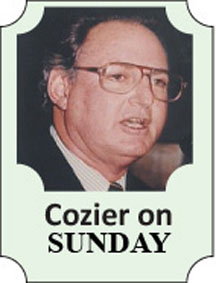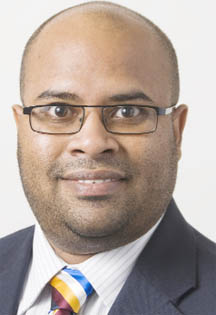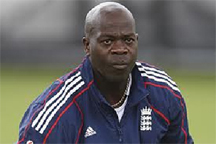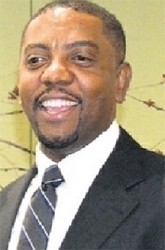THE procrastination typical of the West Indies Cricket Board (WICB) has left the team without a head coach for a home series against Bangladesh that should be ideal preparation ahead of the tough away assignments against India and South Africa and the World Cup.
It had five and a half weeks after the last international engagement, against New Zealand in the Caribbean in June and July, in which to remove Ottis Gibson after four undistinguished years in the post and give his replacement the two Tests, three ODIs and one T20 International against the lowly Bangladeshis to settle in. Twelve days earlier, it had changed its selection panel, making Clive Lloyd, the inconic captain of the Seventies and Eighties, as chairman and including Courtney Walsh, West Indies’ leading wicket-taker.
In Gibson’s case, it waited until a day before the opening match, Wednesday’s ODI in Grenada, to acknowledge that the two had “mutually agreed to terminate their association with immediate effect”. By then, it was already a widely known fact.
 The upshot has been the unsatisfactory situation of the team manager, former captain Richie Richardson, pressed into doubling up as interim coach until there is a permanent appointment. That in itself has inevitably created unhelpful speculation over who that might be.
The upshot has been the unsatisfactory situation of the team manager, former captain Richie Richardson, pressed into doubling up as interim coach until there is a permanent appointment. That in itself has inevitably created unhelpful speculation over who that might be.
The delay was accompanied by the ambiguity and confusion that are other hallmarks of the way the WICB conducts its affairs.
Given West Indies’ dismal record under him (a won-lost ratio of 9-16 in 29 Tests, 36-48 in 90 ODIs, 22-21 in 45 T20Is), Gibson’s eventual demise was coming for some time; it was widely predicted after the heavy defeats in India and New Zealand late last year and the later 2-1 loss in home Tests to New Zealand.
It was obvious by his absence as the team assembled in Grenada on Sunday, three days prior to the opening match against Bangladesh, that his time was up.
That’s where the familiar double-speak kicked in.
Immediately, the board’s marketing and communications manager, Imran Khan, asserted that Gibson was still head coach, adding the puzzling rider that an announcement “in relation to a number of changes” would be made next day.
When none was forthcoming, the media called WICB president Dave Cameron for clarification. He acknowledged that Gibson was, indeed, not in Grenada, as anyone interested could tell him; he added that he could “neither confirm or deny” reports that he had been fired. Late Tuesday, the terse announcement finally came from the board that Gibson was no longer head coach.

Newspaper headlines reflected the perplexity.
The Barbados Nation’s on successive days were ‘Still Gibson’, ‘Gibson gone?’ and, the finality, ‘Gibson gone’. The London Times carried the story under the banner ‘Gibson walks out on West Indies’. The Stabroek News of Guyana took the middle road, ‘Gibson, WICB sever ties’. It is still not known whether or not Gibson walked before he was pushed.
So while the well travelled, 45-year-old Barbadian moves on – with the WICB offering its “best wishes in all his future endeavours” – the hunt is on for a new man to take charge.
One Trinidad newspaper conjectured that Richard Pybus, the Englishman appointed the WICB’s director of cricket, will make the recommendation. It reported that he had already met with Mickey Arthur, the South African

dismissed as Australia’s coach last year, making him the front runner. Arthur was one of the five overseas coaches in the recently concluded Caribbean Premier League (CPL)
If Pybus does put his name forward, it would be a complete contradiction of his comments contained in his report to the WICB in March.
“The introduction of coaches from other cricket cultures (the Australians Bennett King and John Dyson were West Indies head coaches between 2004 and 2010), and players having single rooms on tour, brought about changes in the team culture that manifested in a breaking down of the natural handing on of Caribbean cricket wisdom, senior player to junior player,” he wrote. “Informal coaching by elite cricketers was replaced by formal coaching from an alien culture with a different values system…Confusion over the natural Caribbean way of playing and coaching emerged.”
The WICB has not either confirmed or denied whether it would again turn to “formal coaching from an alien culture with a different values system”.






